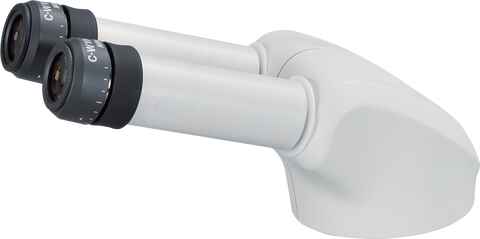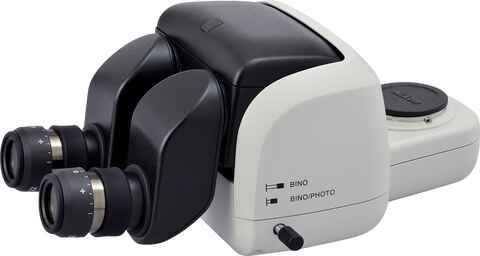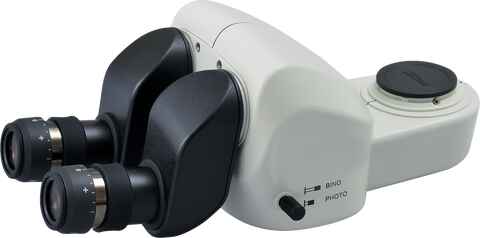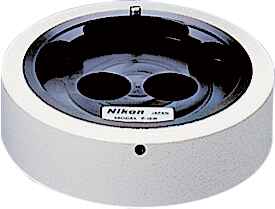Tubes/Eye-level Riser
Various ergonomic tubes with different inclination angles enable suitable eye levels to be selected for observation, even when an intermediate tube or illuminator is attached. Trinocular tubes are also equipped with camera ports.
P-B Binocular Tube

20° inclination angle allows observation without having to lean forward and reduces fatigue during long-time operations.
P-TERG100/P-TERG50 Trinocular Tilting Tube

P-TERG100 Trinocular Tilting Tube
Allows continuous adjustment of the eyepiece inclination from 0° to 30°.
Optical path switching ratio of eyepiece:camera port is 100:0/0:100 with P-TERG100 and 100:0/50:50 with P-TERG50.
*P-TERG100/P-TERG50 Trinocular Tilting Tube cannot be used with C-PSN/C-PSCN/C-LEDS/C-DS Stands.
P-T100 Trinocular Tube

By adjusting the eyepiece mount, the eyepoint height can be raised by 106 mm while keeping the inclination angle constant.
Optical path switching ratio of eyepiece:camera port is 100:0/0:100.
P-IER Eye-level Riser

Increases the eyepoint height 25 mm per riser for a total of 50 mm.
Intermediate Tubes
Various intermediate accessories are available that can be inserted between the microscope zooming body and tube.
P-IBSS2 Beam Splitter S2
Using a beam splitter and camera adapter, a digital camera can be attached to the binocular eyepiece tube for imaging. Optical path switching ratio of left eyepiece:right eyepiece:camera port is 100:100:0/100:50:50.
P-THSS Teaching Head
Simultaneous observation of the same viewfield is possible between the eyepiece lenses of both teaching head and microscope, making it ideal for educational purposes. The pointer can indicate target points in the viewfield during observation.
P-IDT Drawing Tube
A sample image can be drawn by simply tracing the observation image, which is overlaid on top of the drawing within the field of view. The drawings can be removed from the field of view by using the knob to block the light path.

